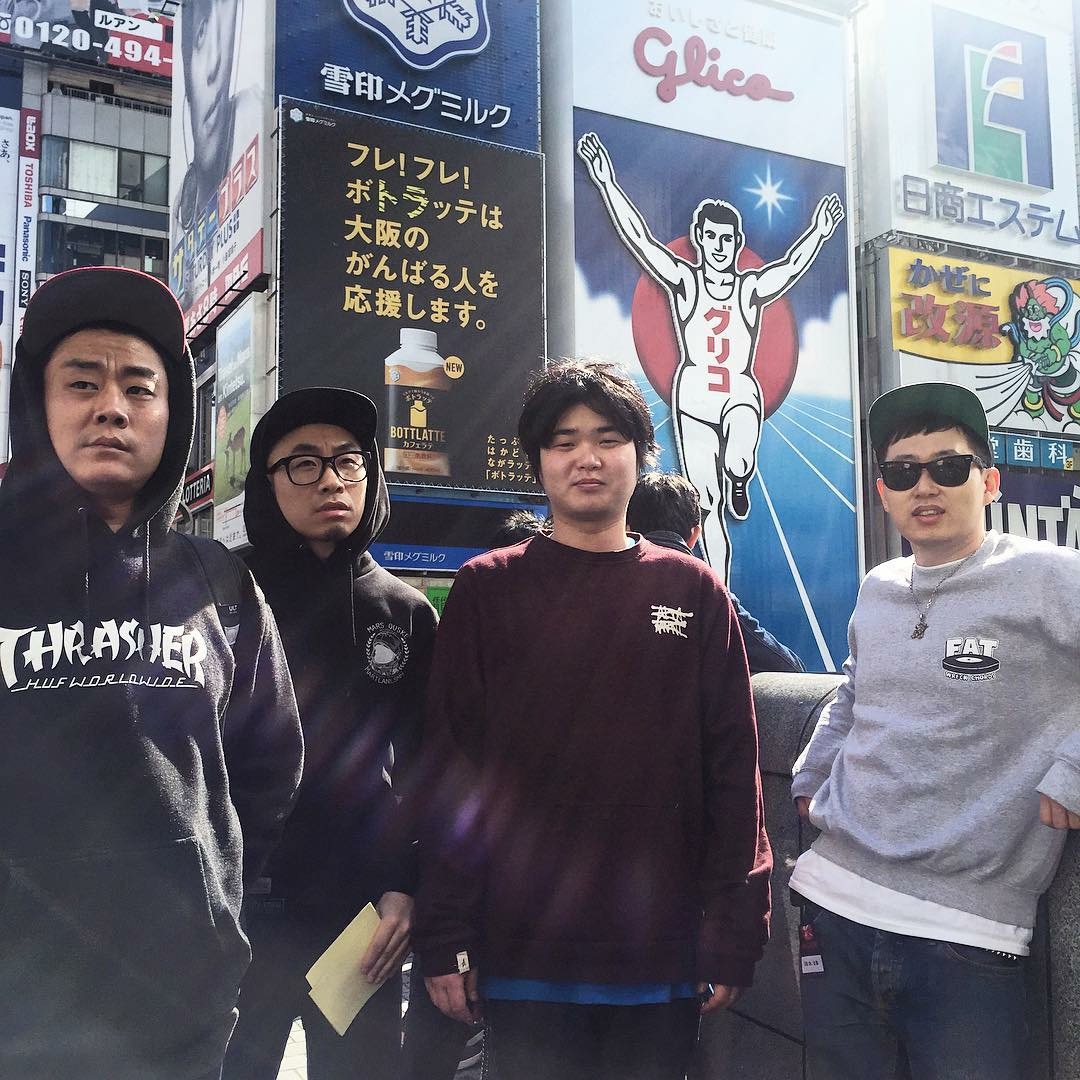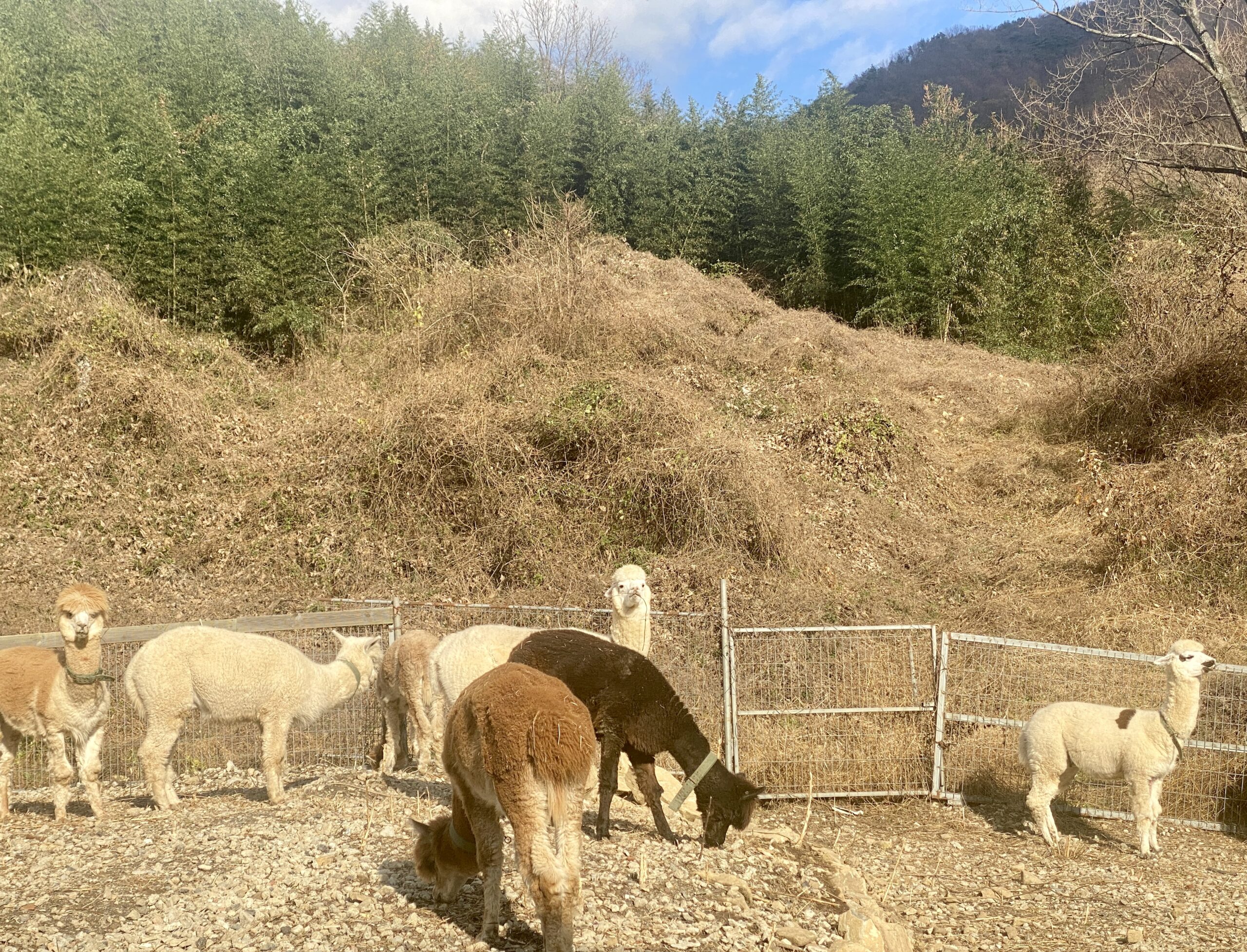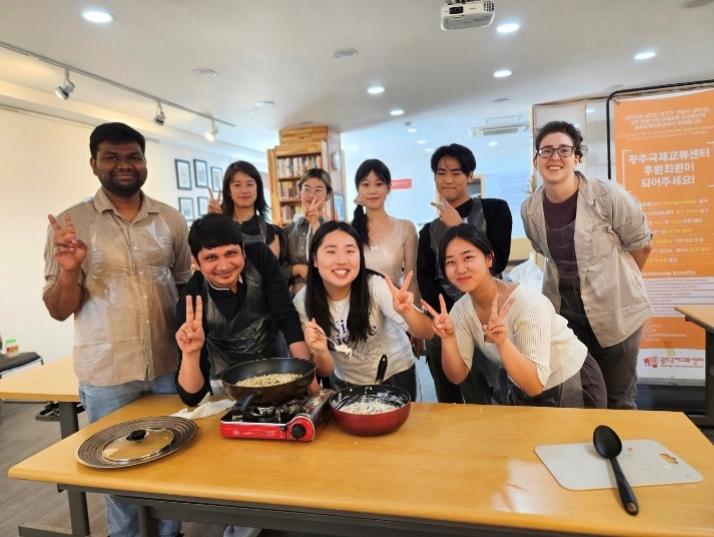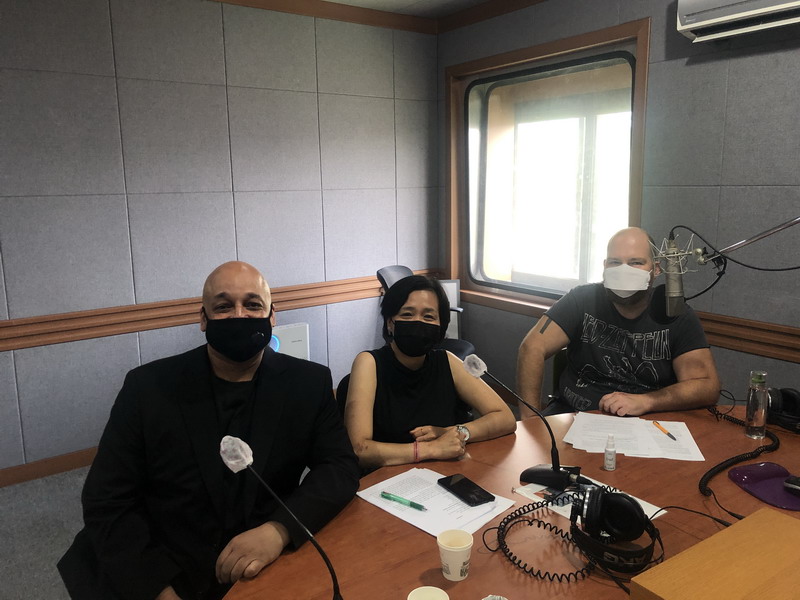Face2face: A Heart-to-Heart from GFN
As this radio program is in an interview format, I took the liberty of writing the article as an interview as well. — Arlo
Arlo, the Host: Please tell us about the show.
Arlo, the Interviewee: Face2face is a one-hour talk show that airs at 7–8 p.m. on GFN every Sunday night. I am the host, which means that I interview the guests. The show has a great writer, Jang Mi-rang (장미랑), who writes insightful questions as well as books interesting people to come on the show. The show is produced by Kim Mi-young (김미영), who is GFN’s chief producer as well as the person who first hired me seven years ago! I was very excited to work with her again, as she was my producer for my first years at GFN.
Why is it named “face2face”?
The first and most obvious reason is that it is meant as a joke. Describing humor, Kant wrote, “Laughter is an affection arising from the sudden transformation of a strained expectation into nothing.” I think that perfectly describes my intention. Radio is by definition only audio and over distance. It is the opposite of face-to-face. This is the paradox.
Then there is the implied meaning of the phrase. If you tell someone you want to do something “face-to-face,” it has a serious connotation. It might be a date, it might be a breakup, or it might be a meeting with your boss. I think it also suggests authenticity, maybe because it has a parallel structure with “heart-to-heart.”
Finally, there is the pandemic. I miss seeing people’s faces, smiles on the street, and responses to my exaggerated expression when I am trying to make a joke. A lot of foreigners I know are quite homesick, and all of the Zooms and messengers in the world cannot make up for the feeling of being in a room with your family and friends. I think that a year and a half of mask-wearing and long-distance communication has left us all wishing for a little more face-to-face. This show is meant to make you feel closer, in distance as well as in empathy and understanding.
Stylistically, I chose lowercase letters to make it less pretentious, and the number “2” is a transparent attempt to seem hip. Also, it is a play on the fact that the episodes are generally a conversation with two people: host and guest, though at times there are multiple guests.
Who do you interview? Are they mostly foreigners or Koreans?
The tagline for the show is “These are the great stories of ordinary people.” They are people from different walks of life and different countries, telling us their story of how they got here, what they are doing, and where they will go next.
We try to invite guests that are related to something topical in the news. Our first guest was the representative of the local Myanmar community who spoke about resistance to the coup. When there was news of changing tattoo laws in Korea, we invited a local tattoo artist.
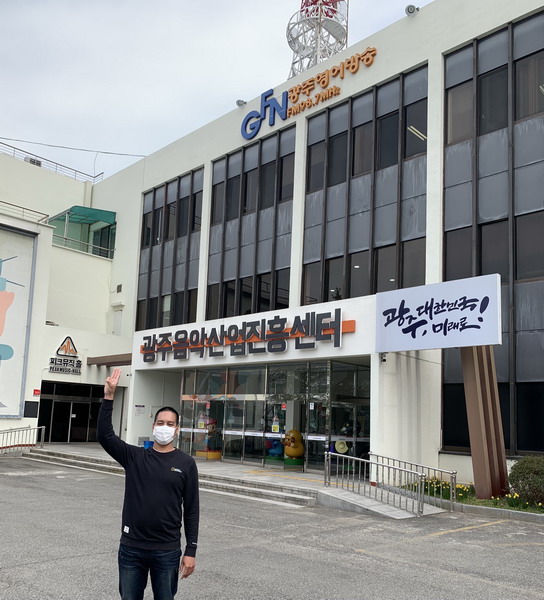
Other guests come in because they are visiting Gwangju. Two students and a professor associated with the Critical Language Scholarship Program were recent guests. They are here for a short time for an intensive language program.
Gwangju is a city of art, and so we also try to have a lot of local content creators as well. Local musicians, YouTubers, puppeteers, and actors have appeared on the show.
Finally, some of our guests are people who we think have an interesting story to tell. It could be because of their interesting work, such as a funeral director or a veterinarian. Or it may be that they are involved with something important, like domestic adoption or environmental preservation.
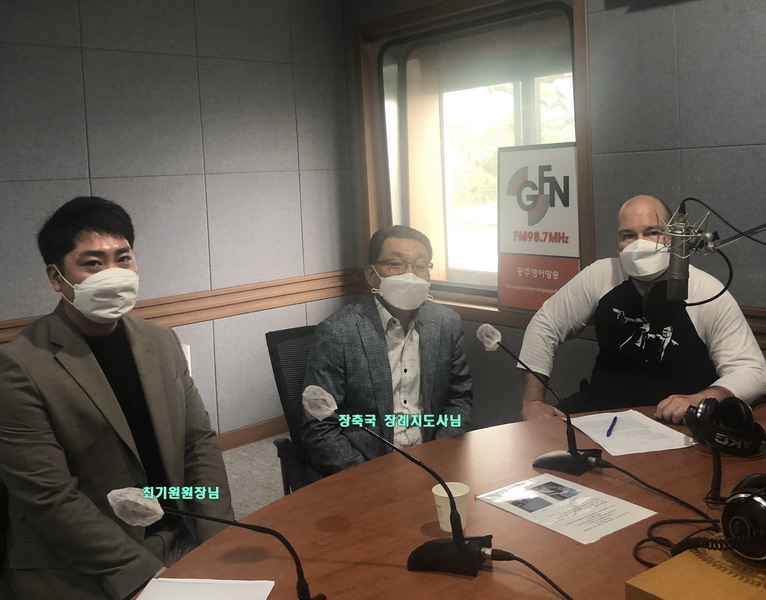
What do listeners get from the show?
Like any of GFN’s programming, we are serving two different groups of listeners. Of course, anyone can listen to enjoy our entertaining and informative programming, but some listeners are also listening to improve their language ability. This program offers some candid conversation with guests for whom English may be a first or second language. In either case, it is a great opportunity to pick up natural speaking patterns. Diverse guests with different cultural backgrounds offer diverse perspectives and experiences that all listeners can benefit from learning about.
Sometimes I hope a guest can really change some minds. For example, a group of guests who had adopted children domestically may have given some listeners a completely new perspective of something that has been traditionally stigmatized in this society. A Korean high school student who studied in schools in four different countries offered words of inspiration to students and teachers, as well as contrasting education and learning styles.
Also, I think foreigners living here in Korea can definitely benefit from interviews with Korean guests. Whether it was a professor giving advice about learning the Korean language, or a Korean veterinarian giving tips on raising pets here, there is plenty of informative content that can help expats learn and adjust.
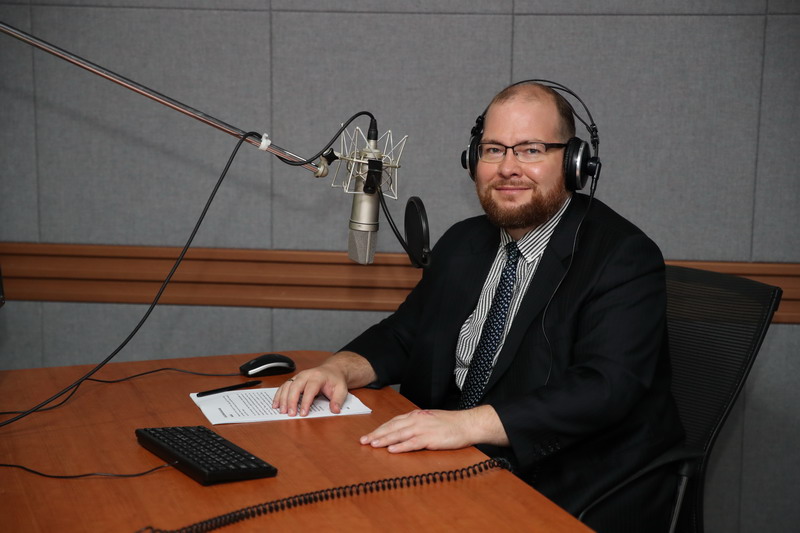
What do you enjoy about this job?
I think it is a lot of fun to interview people. I do not like small talk. I would prefer to learn something interesting about someone. The truth is that most people enjoy talking about themselves, so with a little coaxing, the shyness of being in the studio melts away, and it becomes a natural dialogue. The longer format of the show gives a chance to break the ice as well as an opportunity to get into more depth with the interview subject.
Are there any changes to the show format for its second season?
Starting this fall, we are hoping to book more interviews with people outside of the city. Of course, we would like to have guests that offer our listeners a special opportunity to learn about something new. The pandemic has made this kind of thing more difficult, but hopefully as the country opens back up, we will have more opportunities for high-profile guests.
How can listeners get involved?
First and foremost, by listening! Also, if someone is interested in coming on the show or knows someone who would be a great guest, they can contact us through social media or personally. This is community radio, so it is important to have that kind of direct engagement, face-to-face.
Photographs courtesy of Arlo Matisz.
The Host
Arlo Matisz is an economics professor and the host of GFN’s face2face. He is big-headed and big-hearted.

